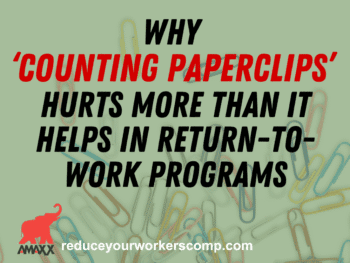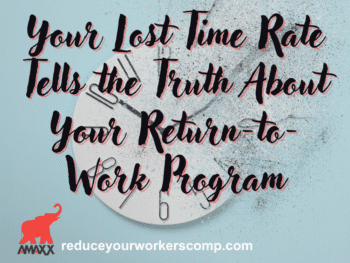What should be included in a Transitional Duty (TD) Policy. A policy is a high-level document that normally contains a general explanation rather than information about HOW the policy will be implemented. Detail about HOW a policy is implemented is provided in working instructions, guidelines, templates and forms. Here are some ideas of sections of your new policy:
1- Purpose of the Policy – a policy generally begins with a statement of purpose.
2- Eligibility – will all ill and injured employees be allowed to participate or only employees who are injured on the job.
3- Type of Jobs – What type of positions, duties or tasks will be provided. Will they be similar to the original job?
4- Nature of Assignment – Is transitional duty mandatory, and what happens if an employee does not participate in the program.
5- Medical Appointments during TD – how will physical therapy and medical appointments be handled while an employee is on TD?
6- Length of Transitional Duty – how long will transitional duty assignments last
7 – Review of Assignments – how will assignments be reviewed
8- Communication of Expectations – how will information about TD be communicated (letters, phone calls, meetings)to participants in the program.
9- Termination of Assignments – What happens when TD ends if the employee has not returned to their original job. Will notices run concurrently, etc?
10- Rate of Pay -will this be full pay, partial pay or somewhere in the middle. Is overtime allowed?
11- Coordination with Relevant laws – how will other laws such as the FMLA, ADA, COBRA, etc be coordinated. These are the considerations to include in your TD Policy. Of course every company is different so you will tailor these to meet the needs of your company.
Author Rebecca Shafer, JD, President of Amaxx Risks Solutions, Inc. is a national expert in the field of workers compensation. She is a writer, speaker, and website publisher. Her expertise is working with employers to reduce workers compensation costs, and her clients include airlines, healthcare, printing, publishing, pharmaceuticals, retail, hospitality, and manufacturing. See www.LowerWC.com for more information. Contact: RShafer@ReduceYourWorkersComp.com.




























